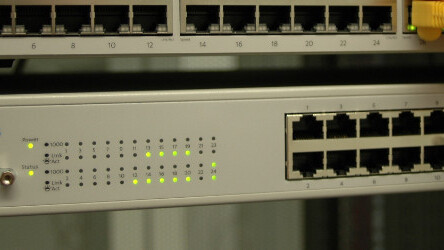
On Monday, The Next Web covered Research In Motion’s possible attempt to best Google in bidding for the numerous patents held by Nortel. The patents are seen as a huge asset to mobile industry players as a key in coming out on top in the mobile realm. Google’s bid seemingly came out of nowhere — and was noticed across the mobile technology space immediately.
“What’s fascinating about it is that Google put out this bid on this huge portfolio almost sight unseen,” says David E. Mixon a partner and patent attorney with Bradley Arant Boult Cummings LLP in Huntsville, Alabama. “Because it’s got this huge number of patents in the portfolio and there’s not enough time or money to analyze all of that.”
While Research In Motion has yet to comment on why it might bid on the properties, Mixon has some ideas.
“There are two basic reasons,” Mixon explains. “First, is to establish a very large patent portfolio that is technology-based. The other reason is probably to keep it out of the hands of Google. (RIM) can also use it to go after or potentially intimidate smaller competitors or competitors that don’t have as large of a patent portfolio — just by the size of it alone.”
It’s those patent portfolios that are used as defensive mechanisms against each other. The more patents a company has, the more it prevents other companies from going after it in litigation. Google, who has quickly risen to the upper ranks in mobile technology, is already seeing lawsuits come its way. Acquiring the Nortel properties would help them combat such litigation.
But what if Google is outbid for the patents, either by RIM or by another mobile giant such as Apple?
“It’s hard to say. I don’t think it would stop them in their acquisition,” says Mixon. “This situation is kind of unique because you had this huge portfolio on the market because of the situation with Nortel. I don’t think that if Google failed to acquire this portfolio that it would stop them in their efforts. They would (just) most likely acquire smaller portfolios many times over — so to speak — through acquisition or outright purchase or licensing.”
Mixon also notes that such a strategy wouldn’t be as visible as the current bid for Nortel is, but thinks that would be the way Google would go about handling it.
In such a large portfolio, Mixon believes that there will be some patents that will be very valuable and some that aren’t commercially viable at all. But he doubts that they will be split up and sold separately prior to being sold by Nortel’s stakeholders.
“I’m presuming it’s an all or nothing deal,” Mixon suggests. “First, for efficiency. Also, for the long-term prospects of the bankruptcy settlement. They (Nortel’s creditors) will probably make more money this way than if they try to pick and choose which patents to sell.”
The longer any sort of bidding war for the Nortel patent continues, the worse it may be for Nortel’s stakeholders. Mixon believes that over the long-term that the stakeholders will lose out.
“(These patents) were like the ‘crown jewel’ of Nortel. It’s not something that companies like to give up readily,” Mixon explains. “Intellectual properties — especially for tech companies…of all sizes — is very important to them. Nortel’s spent a lot of time and a lot of money building up this portfolio and to have it basically auctioned off in a bankruptcy proceeding has got to hurt them, especially in the long term.”
Get the TNW newsletter
Get the most important tech news in your inbox each week.




